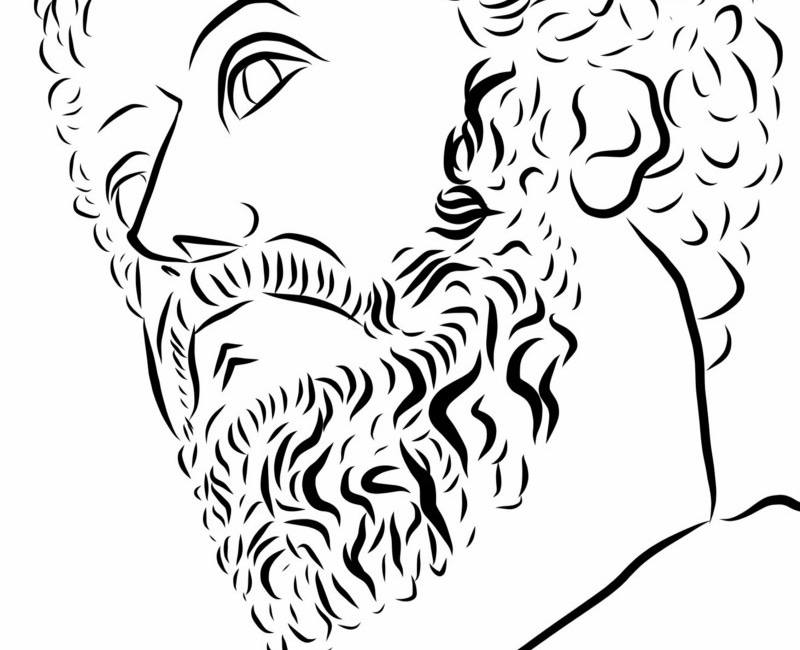Did you hear? Last week, Mind Candy became ranked in the top 100 Philosophy newsletters on Substack.
If you haven’t signed up and are interested in human flourishment and living a life of fulfillment, subscribe and join our growing community.
Introduction to Monthly Theme
"Human beings are a species splendid in their array of moral equipment, tragic in their propensity to misuse it, and pathetic in their constitutional ignorance of the misuse."
What does it mean to live a moral life?
Is it treating others how we would like to be treated? Is it doing the right thing? And if so, what is the right thing? Or is it turning the other cheek? Never hurting someone? Always being able to say yes when asked?
For thousands of years, philosophers snd every day people have tried to determine what the proper course is ti living a moral life.
Aristotle suggested it was through one’s character which is built through daily habit. “Moral virtue comes about as a result of habit… we become just by doing just acts, temperate by doing temperate acts, brave by doing brave acts.”
The Stoics believed it was through four virtues. Epictetus stated, “What does virtue achieve for us? Serenity.”
Jeremy Bentham and John Stuart Mill thought it was for the greatest good for greatest number. Bentham famously stated, “The greatest happiness of the greatest number is the foundation of morals and legislation.”
Immanuel Kant believed we should only act as in ways we wanted everyone else to. “Act only on that maxim through which at the same time you can will that it should become a universal law.”
For the month of June, we’re exploring morality. We’re looking at different aspects of it, how we can apply the teachings of different schools of thought, and how we ourselves can live a moral life.
To live a moral life, one must be prepared to pursue virtue daily according to Stoic philosophy.
Virtue was the cornerstone of Stoicism. Everything that flourishes from the study of it—resilience, relinquishment of anger, happiness—it all stems from the belief that one attains these things as byproducts from one’s pursuit of virtue.
The orator Cicero, one of our primary sources of Stoic philosophy, summarizes the Stoic worldview as virtue being the highest good. It is from the Stoic virtues, today known as the four cardinal virtues, that one lives a flourishing life. “All that is morally right,” he writes, “rises from one of four sources.”
He then breaks down each of the four virtues: Wisdom, Justice, Bravery, and Temperance.
“the full perception and intelligent development of the true,
or with the conservation of organized society, with rendering each person their due, and with the faithful discharge of obligations assumed,
or with the greatness and strength of a noble spirit,
or with the orderliness and moderation of everything that is done.”
Perhaps most important across all the virtues is that of Wisdom. This can be thought of as practical wisdom, how we make our decisions. Each action we take stems from this virtue.
When we’re in a confrontation with someone—perhaps we’re in a disagreement at work or someone cuts us off in traffic—we hold the ability to decide how to respond. Do we wish to respond hastily and heated? Perhaps degrading our coworker or flipping off the individual who cut us off? Or do we want to review the scenario and contemplate how best to approach it? If we react, if we allow our emotions to get the best of us, we’ve already lost, we’ve allowed our rational faculty to be overrun.
Wisdom is there to guide us through scenarios. It is the practical application of what we know so we’re making the right decision for the right situation.
Justice holds that we as individuals are but a small part of a much larger society. This may seem obvious, but our interconnectedness is foundational to Stoicism.
Justice is about more than the law, it’s about ensuring we make morally correct decisions and we take into account how those decisions will impact those around us.
Are we thinking through the ramifications of our actions? Are we looking for what is best for the whole and not just ourselves? Justice, in other words, anchors us to being morally good individuals by how we use our wisdom. It’s about remembering our shared humanity with one another.
Bravery is about being willing to stand up during hard times.
Maybe our lives require physical courage such as being willing to try and push our bodies to the limit, or get into a boxing ring with an opponent, or hold our ground in a confrontation. Other times, we must find moral courage, being willing to stand up to injustice, to take a stand when what is right is being pushed aside. Bravery (or courage) is about implementing our other virtues when there is pressure not to.
The final virtue of the cardinal virtues is Temperance of self-control. In essence, we must remember moderation within our actions.
Perhaps we’ve hit our one drink maximum, or we are running but need to keep our pace at a sixty percent speed. Maybe it’s not responding to something you really want to.
Temperance ensures we’re not going too far left or right. We’re not overusing our other virtues (which Aristotle reminded could easily lead to indulgence and vice). Temperance is there to keep balance with everything.
“Now, if virtue promises to enable us to achieve happiness, freedom from passion, and serenity, then progress towards virtue is surely also progress towards each of these states,” Epictetus taught his students. “For it is invariably the case that, whatever the end may be towards which perfection in anything definitively leads, progress marks an approach towards that end.”
By following the four cardinal virtues, we help ensure we’re living a morally sustainable life because we’re attempting to make the best decisions that allow us to build the world for all. We stand up to the injustices that arise, and we ensure we ourselves are not over indulging in our actions.
The virtues can be thought of as a code of conduct, a way to check ourselves on a daily basis to ensure we’re upholding the best of ourselves and society. As Marcus Aurelius reminded himself in The Meditations, “Straight, not straightened.” Our actions from the beginning being pure and in alignment with the virtues, not corrected by others, but known in our heart what is required with each action we take.
“It would be wrong for anything to stand between you and attaining goodness -- as a rational being and a citizen,” he reminds himself. “Anything at all: the applause of the crowd, high office, wealth, or self-indulgence. All of them might seem to be compatible with it -- for a while. But suddenly they control us and sweep us away. So make your choice straightforwardly, once and for all, and stick to it. Choose what's best.”
By following the four cardinal virtues, we not only shield ourselves from the external desires of the world, we align ourselves to live in the path of virtue, to ensure our actions are straight and good, are holding us to the highest standard, and are assisting all those around us.
Through virtue, we find human-flourishment.
Before you go…
If you enjoyed the above article, you may be interested in this one as well:
Thank you for reading Mind Candy. If you enjoyed this work, please consider upgrading to a paid subscription. Or if now isn’t the right time, please share to someone who could benefit.
Until next time,
D.A. DiGerolamo
We are a participant in the Amazon Services LLC Associates Program, an affiliate advertising program designed to provide a means for sites to earn advertising fees by advertising and linking to Amazon.com.










Thank you for this teaching. I loved to learn about stoicism from your words!